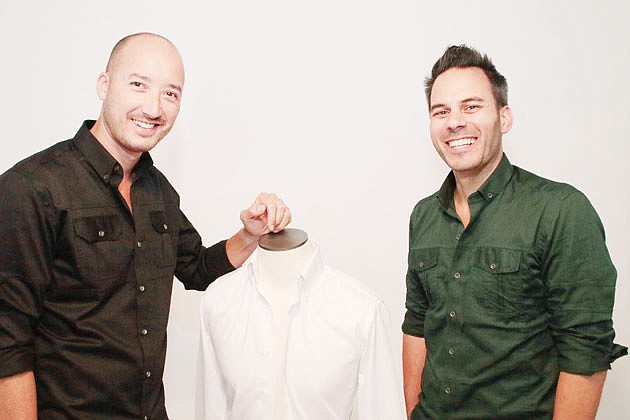The past 12 months — year three of running his own company, after a decade in the global fashion industry— has been the biggest learning curve yet for Geoff Argue.
The former head of women's knits at Chico's FAS, one of the largest departments at the Fort Myers-based retail giant, Argue and a business partner in 2015 launched Batch. The idea for the company: Make and sell high-quality men's shirts, with style and a price tag under $100, then sell the shirts in small quantities, only online. Argue compared the model to the craft beer movement. What's lost in sales volume is made up in creating a brand that drafts raving fans.
While Argue says he never thought it would be easy, some challenges, and lessons, have surprised him. For one, he looked at Batch like many other businesses. He would need to prove the concept, get the inventory, then sell the stuff. “Like a hot dog stand,” Argue quips in an early December interview.
But building Batch, and its brand, has proved far more inconsistent and complicated. “I thought I was a small business,” he says, “But I'm really running a startup.”
For Argue, that means things come up out of order, rather than the ready-made prove it, get it, sell it philosophy. “I thought it was going to be a lot more straightforward,” he says, “but there so many more layers to running a startup.”
That includes learning when to say no to customers and opportunities, when to be patient and when to push for something, and when to end a business partnership. On the client rejection, Batch had been working with Kimpton, doing branding and promotions at the openings of some of the chain's boutique hotels.
But those efforts took a chunk of Argue's time — for little payoff. It made “sense for the brand,” says Argue, “but reduced our focus on our core business of providing guys with world-class utility shirts.”
In 2017, Argue also split with his business partner in Batch, Tom Severini. Argue says the departure was amicable, and Severini remains in Fort Myers, running his own startup.
What remains mostly the same as Batch heads into 2018 is the concept. Batch pays tailors in India, on a per-shirt basis, to manufacture mercerized cotton shirts. The shirts comes in three lines: business casual, casual and utility. (Argue says they don't sell many dress shirts, which was a fourth line.)
The shirts are made with durable mother-of-pearl buttons instead of more traditional plastic. The shirts are also made with reinforced elbow patches and extra-soft interlines in the collars and cuffs. “I chose not to go find a shirt and sell it like everyone else does,” he says. “That's not how our company works.”
Argue, in the recent interview, says the customer and industry feedback, in general, is the shirts meet high-quality standards. The biggest challenge, he says, is even as e-commerce booms, men hesitate to buy shirts online. And when they do, they might go to a site like Amazon first. “I think my timing, in a way, is almost too early,” he says.
Argue declines to disclose revenue figures, only to say while sales are up fourfold year over year, it's never “really good or fast enough” for him. About half of Batch's orders come from California, and New York customers are No. 2. About 5% of the company's sales are international, which Argue says is a costly and time-consuming shipping process.
Argue is confident 2018 can be a tipping-point for Batch, with sales and brand momentum. He's also confident he will discover a lot more about running a business. “I've learned I want to be much more patient,” says Argue. “I've learned this is a journey, and I'm waiting to see how it plays out.”






